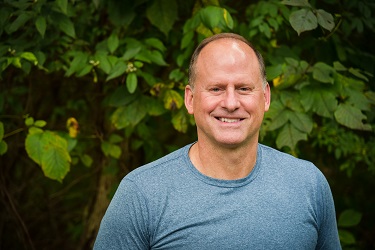
To Brood
Contributor’s Marginalia: Todd Davis responding to Diana Cao’s poem “Love Poem for Brood X”
In “Love Poem for Brood X,” Diana Cao urges the reader to “Consider a moment / what the cicada knows.” In a time where humans have continued to distance themselves from the more-than-human natural world, to divorce themselves from what gives life, what sustains life and makes our very existence possible, how wise Cao is to consider, and observe, and imagine what other-than-human beings might know, what they experience, endure, suffer, and celebrate.
Seventeen years. To wait seventeen years to see the sky again. This is what the cicadas we’ve named Brood X do. To wait seventeen years and still love the world when you appear, to love it even more. To abide, to bide one’s time, and to nevertheless love. To brood. And then to experience birth and rebirth. Out of the graves of your ancestors. Out of the cradle that sits in that grave, or as Cao describes it: “growing in soil rich / with the bodies / that came before you.”
To listen to the sound of all the other buried bodies released back into air, chorusing through night and day. You and your fellow cicadas awake, alive, swarming in such numbers that despite the predators who await your return—birds and fish and all sorts of other hungry mouths—some of you will survive long enough to begin the cycle again. Your plan: to so inundate the world with your presence that you cannot fail. A flood over every surface so some might go on.
Cao writes that “It would be enough / to put on a good show,” and what a show it is, if you’ve been fortunate enough to witness it! As one who loves the world, whose life and writing and very profession as a professor of environmental studies is a blessed immersion into that world, I thrilled to see a love song for some other-than-human being in the pages of 32 Poems, a love poem for Brood X, the cicadas who emerge and offer some proof of resurrection, some grace and hope for troubled times.
This emergence does not occur everywhere but rather in a particular geographic area in the eastern part of the United States. I live in part of that region along the Allegheny Front and remember well the last time these complex and mysterious creatures appeared from the dark soil.
I’d been looking ahead for several years, daydreaming about that seventeenth year, longing to see them, to hear them. I wanted to cry out in the forest along a small stream where I hike and fish, to holler welcome back, to tell the thousands and thousands how I missed them, knowing their visitation—at once seemingly so otherworldly but so fully of this world—would be brief.
And now this visitation is already many months in the past, and I have little besides a renewed longing to show for it. That is, until I read Diana Cao’s poem, her direct and brilliant love poem, her memory poem filled with anticipation and fulfillment. Like the best writing, this poem is a small if imperfect way to help me hold onto a moment in the past and the desire, the joy, that past contains.
But this poem, in its commandments, is also a form of wisdom disguised as a set of instructions. Cao tells us to:
Shed your first body
& sing, throw a party
as the last defense of your species.
And so here in the middle of winter, longing for light and a return to the cacophony of Brood X, knowing I must wait another seventeen years, that if I live that long I’ll be 74 and may not be able to hike that rocky streambed to witness those cicadas, to see the native brook trout leap at the newly released bodies, I will shed the body of my grief and throw a party, and the music will be Cao’s poem, and I will form my lips to imitate the buzzing sound of those cicadas, and I will search the evening air as I stumble home for those “two red eyes in the dark, dawning” that Cao calls forth with her lines as a way to love again.
